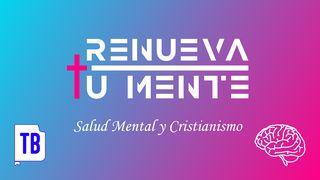The Heart Of Paul’s Theology: Paul And The GalatiansMuestra

Paul’s Understanding of Law: Galatians 3:1-3
The role of the Holy Spirit was one of the main ideas Paul had in mind as he wrote this letter. This emphasis can be seen in Paul’s first description of the false teaching in Galatia.
Consider what he wrote in Galatians 3:1-3:
You foolish Galatians! Who has bewitched you?… Are you so foolish? After beginning with the Spirit, are you now trying to attain your goal by human effort? (Galatians 3:1-3)
Paul was amazed that the Galatians, who had begun their Christian lives by relying on the Holy Spirit, had somehow been tricked into relying on their own human effort.
One place in which Paul called great attention to the contrast between the work of the Holy Spirit and the work of fleshly human effort was Galatians 5:16-26. There, he developed a strong contrast between the flesh and the Spirit. Paul contrasted the acts of the sinful nature, or of fleshly human effort, with the fruit of the Spirit. In Galatians 5:19-21 he listed the works of the flesh as including: sexual immorality, impurity, debauchery, idolatry, witchcraft, hatred, discord, jealousy, fits of rage, selfish ambition, dissensions, factions, envy, drunkenness, and orgies. But in Galatians 5:22-23 he listed the fruit of the Holy Spirit as: love, joy, peace, patience, kindness, goodness, faithfulness, gentleness, and self-control.
The false teachers wanted people to believe that by fleshly human effort they could submit to circumcision, and that they could be empowered to live righteously. But as Paul showed here, the only thing human effort could produce was sin. Joel 2:28 is one prophecy which clearly expressed that during the age to come God would pour out his Spirit in ways that he had not done in the Old Testament.
And afterward, I will pour out my Spirit on all people. Your sons and daughters will prophesy, your old men will dream dreams, your young men will see visions (Joel 2:28).
The Holy Spirit had been present with believers even before Christ came, and he had empowered believers to remain faithful to God. But back then his greater filling and special gifts were reserved, with few exceptions, for a limited number of people, such as prophets, priests and kings. In this sense, the Holy Spirit’s presence was less dramatic and overwhelming in the Old Testament. But Joel prophesied that in the age to come the Holy Spirit would be poured out on all classes and groups of believers. And as we learn in Acts 2, Joel’s prophecy began to be fulfilled on the day of Pentecost. At that time, God began pouring out his Spirit on all his people in a dramatic way, indicating that the hope of the age to come had become a reality.
But in Galatia, the false teachers had instructed the Galatians to rely on their own human efforts to live righteously, indicating that they denied the Spirit’s abundant gifting and enabling in the New Testament era. They failed to realize the great blessing of the Holy Spirit that Christ had brought when he inaugurated the age to come. In response, Paul reminded the Galatians that those who belong to Christ already possess the Holy Spirit in the fullness of his power. When followers of Christ rely on the Spirit’s power; he moves within them to produce the fruit of righteousness.
Escritura
Acerca de este Plan

This reading plan explores the background of Paul's Epistle to the Galatians, the content of Galatians and Paul's central theological outlooks.
More
Planes relacionados

30 Días Con La Palabra Viva Y Eficaz

Nombres De Dios

El Encuentro Que Transforma

De orilla a orilla: un viaje hacia la reconciliación

Amistades Que Edifican

Sean Fructíferos

Dios Está en Control

¿Qué Nos Pasó En El Edén?- Psicología De La Caída

Renueva Tu Mente
